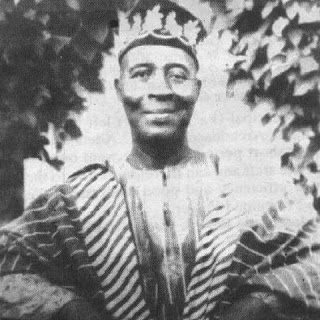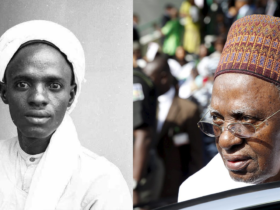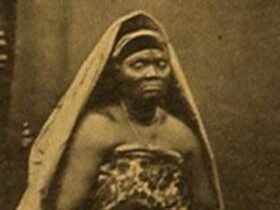No products in the cart.

In a world where women were subdued due to male chauvinism, a woman, Funmilayo Ransome-Kuti, rose and stood for the rights of women. At a time when women were meant to be docile and to suffer all the ills the society meted out to them, there arose a woman who spoke out, travelled wide and championed the rights of women.
Even a woman who caused a sitting king to abdicate for a while due to the tax regime of the Native Authority in Abeokuta.
Who was Funmilayo Ransome-Kuti?
On October 25, 1900, Frances Abigail Olufunmilayo Ransome-Kuti was born in Abeokuta, present-day Ogun State, South-West Nigeria. Her father, who was the son of a returnee slave from Sierra Leone, had traced his ancestral history back to Egbaland.
Contents
For her secondary education, she became the first female student of Abeokuta Grammar School when she was admitted to the school in 1913. Ransome-Kuti later went to the United Kingdom for further studies. However, she returned to Abeokuta after the completion of her studies and became a teacher.
Family and Career
Funmilayo married the Reverend Israel Oludotun Ransome-Kuti on January 20, 1925. Oludotun, who was nine years older, had first shown interest in her in 1913 but, like the Biblical Jacob, waited for twelve years before he married her.
Oludotun was 33 while Funmilayo was 24. The union produced four children: Dolupo, Olikoye, Olufela, and Bekolari.
Funmilayo Ransome-Kuti was known as an educator and an activist throughout her career. In Abeokuta, she founded a women’s organisation with a membership tally of over 20,000 people, which spanned both literate and analphabetic women.

Ransome-Kuti launched the organisation into public awareness by rallying women against price controls that hurt the Abeokuta market’s female merchants. Trading was one of Western Nigeria’s major women’s occupations of the time.
Activism and the fight against the Alake
In 1949, Funmilayo Ransome-Kuti led a protest against the Egba Native Authorities, especially against Oba Samuel Ladapo Ademola, the Alake of Egbaland.
You can read the full story here.
The Alake had been granted the right to collect taxes by the British government, his colonial suzerain. However, Ransome-Kuti accused the monarch of abusing his authority. She backed the claim with several documents.
On January 3, Oba Ademola abdicated his throne and went into exile because of the scandal.

Funmilayo Ransome-Kuti also supervised the successful abolition of separate women’s tax rates. She founded the Federation of Nigerian Women’s Societies in 1953, which later formed an alliance with the Women’s International Democratic Federation.
Political Journey
She also campaigned for women’s votes as she was a member of Nigeria’s ruling National Council and the Cameroons (NCNC) party for many years, but was later expelled when she was not elected to a federal seat in the parliament.
Ransome-Kuti was the treasurer and later president of the Western NCNC Women’s Association. She never really stopped her activism, though. She was one of the few women elected to the Chiefs’ House in the 1950s. At the time, it was one of the most powerful bodies in Nigeria.
Together with Eniola Soyinka, her sister-in-law and Nobel laureate Wole Soyinka’s mother, she founded the Egba or Abeokuta Women’s Union in 1946.
It is said that this association once had a membership of 20,000 people. In addition, Ransome-Kuti conducted seminars for illiterate market women, among other items. She also did not cease campaigning against taxes and price controls.
How did Funmilayo Ransome-Kuti Die?
In old age, her activism was overshadowed by that of her three male children, who successfully opposed various military juntas in Nigeria.
In 1977, when her son, Fela’s compound, a commune that was known as the Kalakuta Republic, was attacked by around 1,000 armed military men, Funmilayo was thrown from a second-floor window where she fell into a coma and died as a result of her injuries on April 13, 1978.

As one of the most prominent leaders of her generation, Funmilayo Ransome-Kuti served with distinction and was awarded the Vladimir Lenin Peace Prize in 1970.
She even travelled to China to meet her leader, Mao Zedong, who was seen by many as a communist. Funmilayo Ransome-Kuti has also been reported as the first Nigerian woman to drive a car.
Read more about her husband here…
We always have more stories to tell, so make sure you are subscribed to our YouTube Channel and have pressed the bell button for interesting historical videos. You can also follow us on all our social media handles and don’t hesitate to as well share this article with your friends.
You can also get A Carnage Before Dawn, a historical account of Nigeria’s first coup d’état. E-book here. Paperback here. And on Amazon Kindle and Amazon Paperback.
Leave a Reply
You must be logged in to post a comment.








Leave a Reply
View Comments